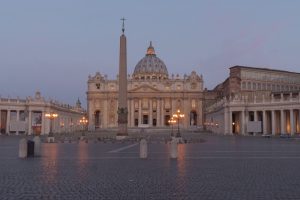
Syeda Nooresahar Ahmad, UK
‘But you were always a good man of business, Jacob,’ faltered Scrooge, who now began to apply this to himself.
‘Business!’ cried the Ghost, wringing its hands again. ‘Mankind was my business; charity, mercy, forbearance, and benevolence, were, all, my business. The deals of my trade were but a drop of water in the comprehensive ocean of my business!’ [1]
So writes Dickens in his famous novella, A Christmas Carol: the story of a man named Ebenezer Scrooge, who, after being visited by a series of ghosts, is forced to see the error of his ways. The miserly businessman is transformed into the embodiment of ‘Christmas spirit’ — which, in the story, is defined by kindness and charitable giving.
Though first published in 1843, the story remains well loved; according to one source, there are 135 different adaptations of the book [2] — something which bears testament to its popularity. Whilst the story is obviously still favoured, it has to be questioned whether the sentiment is still taken to heart. Perhaps when Dickens was writing, the Christmas spirit could be defined simply by giving to those in need or by simple acts of kindness. Nowadays, however, the centre of the festive season has shifted to a focus on material possessions and is all too often accompanied by vast amounts of waste and debt.
Consumerism is encouraged at Christmas more than any other time of the year. By November, ads take over our screens and shop windows blaze with reminders of the upcoming holiday. This is supposedly done in the spirit of Christmas gift giving, but there is a darker side to this constant encouragement of spending. According to experts, we produce 30% more waste on this holiday than any other time of the year. Each year, for example, consumers spend around £700 million on unwanted presents. The misapplication of money does not stop at gifts; 4.2 million Christmas dinners go to waste. This includes 1,315 tonnes of wasted turkeys and 375 tonnes of wasted mince pies — all of which are destined for landfill sites, whilst the production and packaging of these products causes further carbon emissions and environmental damage. [3]
The sheer scale of food waste certainly seems ridiculous in light of estimates that 3 million UK children go hungry during the holidays [4] — but what is perhaps even more ludicrous is that most of us can’t even afford all these things we end up wasting. According to National Debt Advice, a third of people in the UK have to borrow to pay for Christmas gifts. [5] Seven in ten people say they can’t ‘comfortably afford’ Christmas [6], but feel pressured to spend and so turn to credit in order to do so. The question arises, then, as to what this holiday — one of the most important celebrations of the year for some — is really about, if it is often only serving to add more pressure to those who are already struggling, and leave a trail of waste in its wake.
Many would say that Christmas is a celebration of the birth of Jesus (as) — but as Navida Sayed notes in her article, ‘Christmas and Jesus (as): What’s the Connection?’, [7] neither the Bible or the Holy Quran bear testament to his birth being on the 25th of December. In fact, it is common knowledge among religious scholars that there is no evidence that Hazrat Jesus (as) was born on December 25th — or indeed, that there was any encouragement for his birthday to be celebrated at all. Rather, it is most likely that early Christians wanted to adopt the Roman celebration of the winter solstice as a Christian holiday.
Currently, however, it is unclear whether Christmas remains a Christian celebration, or something that has been taken over by corporations desperate to sell us their products. In recent years, the holiday has become increasingly secularised — something that companies often partake in with the goal of increasing their sales, rather than becoming more inclusive. For example, businesses switching terms like ‘Merry Christmas’ to those such as ‘Happy Holidays’ with the intention of making their products more marketable to those who do not follow Christianity. Plus it seems that it is not a Biblical figure, but Santa Claus who resides as the figurehead of the holiday — signalling the removal of another religious element in the effort to make Christmas more marketable. In an article for ‘In These Times,’ Valerie Vande Panne notes that our modern day perception of Santa was created by Coca Cola for their, ‘Thirst Knows No Season’ campaign, making it, ‘the first time a corporation conjured a deity to sell a product’. [8]

This is not to say that the businesses of, ‘mercy, forbearance, and benevolence’ described by Dickens are no longer relevant to Christmas. In fact, this year it seems as though families across the country are aiming for a day centred around more ‘traditional’ Christmas values; spending time with family, making their loved ones personal gifts, and spending less money. [9] Coronavirus has made some stark changes to the holiday; the most significant change for many being the new restrictions in the UK, which mean families will not be able to spend time together during Christmas. [10] But the virus has also significantly impacted the way people are spending. There are now 1.69 million people unemployed in the UK [11] — according to a Which? survey, this means that nearly 50% of consumers plan to spend less this year. This change is not only due to unemployment; restrictions and closures of shops have resulted in less people flocking to the high street, and several chains have also announced they would remain closed on Boxing Day to allow employees to spend more time with their families. [12]
Despite the decrease in spending, the ‘giving spirit’ which accompanies Christmas will still be going strong; and in the donations to food banks or increased charity drives which occur every festive season, we can see the influence of the religious background of the holiday — which prioritised charity and community over consumerism and individualism. Hopefully in the years to come, the lessons we have learned through coronavirus will continue to readjust our priorities — and we will remember that mankind is all of our business.
About the Author: Syeda Nooresahar Ahmad is currently studying English Language and Literature at the University of Oxford. She also writes for the blog site of the Ahmadiyya Ladies Association UK ‘Voice of British Muslim Women’ and has previously contributed to the Voice of Islam radio show ‘Faith in Focus’.
ENDNOTES
[1] https://www.gutenberg.org/files/46/46-h/46-h.htm
[2] https://www.justjaredjr.com/2016/12/02/how-many-versions-of-a-christmas-carol-are-there/#:~:text=So%2C%20how%20many%20versions%20are,the%20three%20ghosts%20as%20well
[6] https://www.yourmoney.com/household-bills/brits-will-not-clear-christmas-debt-until-summer-2020/
[7] https://rorenglish.wpengine.com/13438/christmas-and-jesusas-whats-the-connection/
[8] https://inthesetimes.com/article/we-can-reclaim-christmas-from-capitalism
[11] https://www.bbc.co.uk/news/business-52660591
[12] https://www.which.co.uk/news/2020/12/10-ways-christmas-shopping-will-be-different-this-year/




Add Comment